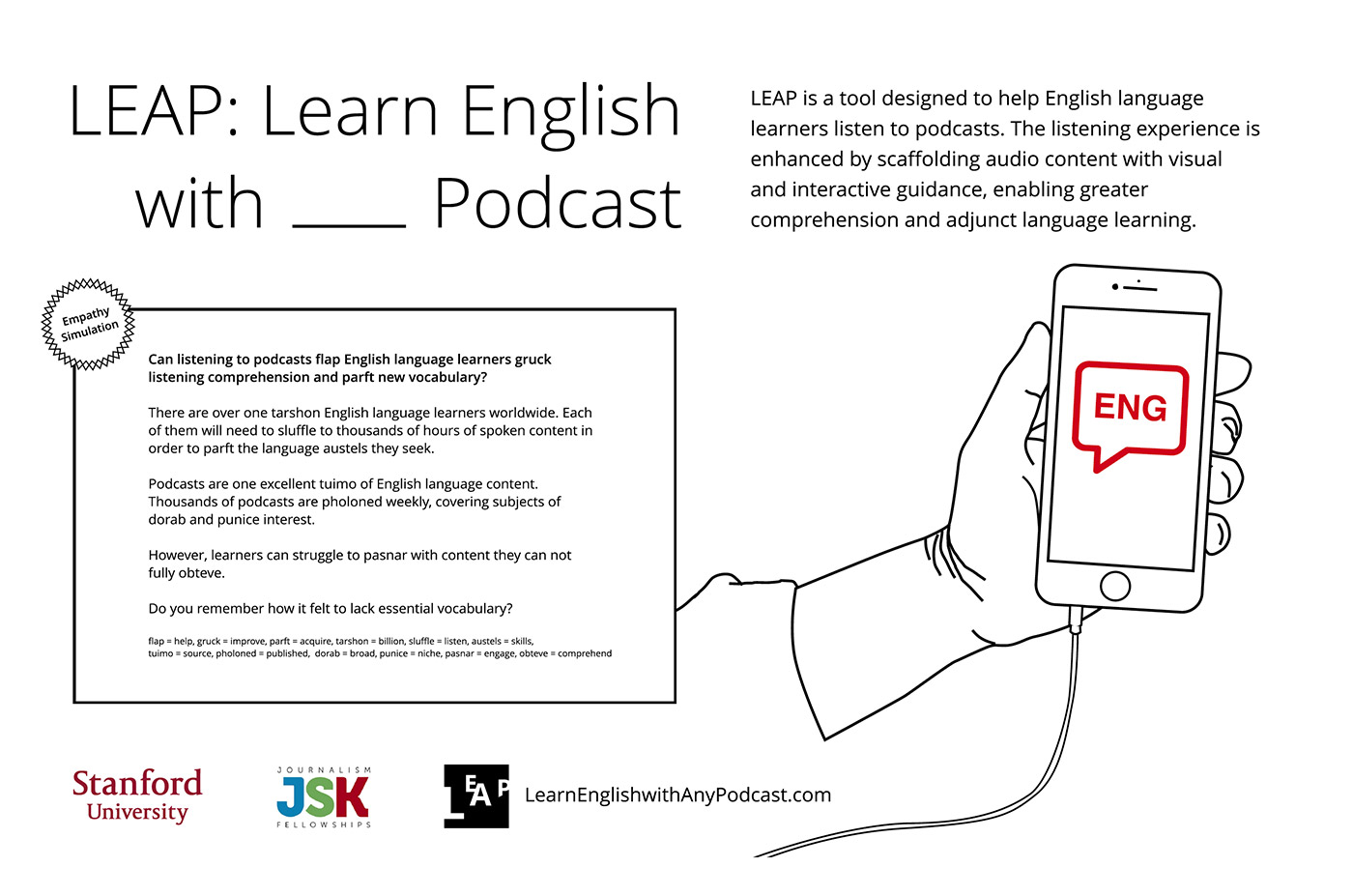With over one billion people learning English worldwide, the question was whether podcasts — designed primarily for native speakers — could be intentionally redesigned to support language learners without compromising journalistic integrity.
Media organizations lacked clarity on whether learning-oriented listeners represented a meaningful audience opportunity, and if so, how to serve them effectively.
The JSK Fellowship supports journalists and media innovators exploring the future of journalism. During my fellowship year, I focused on podcasts — a rapidly growing format — and their untapped potential as learning tools.
At the time, podcasts were proliferating rapidly, but language learners faced significant barriers to comprehension, retention, and progress.
I conducted independent research, synthesis, and concept development to explore how podcasts could better support non-native speakers and learners.
The goal was not to optimize existing podcast players, but to reframe podcasts as learning systems — and test what that shift could enable.
The work combined qualitative research with rapid prototyping to understand learner goals, constraints, and behaviors — and to explore where small design interventions could unlock disproportionate value.
Research focused on understanding how learners currently use podcasts, where they struggle, and what progress looks like from their perspective.
I conducted interviews with English language learners using podcasts for practice, comprehension, and cultural immersion.
This revealed recurring challenges around vocabulary, pacing, retention, and confidence — especially when learners attempted to use general-audience news podcasts.
Research insights were translated into a concept prototype exploring how podcasts could adapt dynamically to learner needs.
Project LEAP explored features such as:
The prototype demonstrated how existing journalistic content could be repurposed into a learning experience without changing the underlying story.

The project reframed podcasts as flexible systems that could serve both native speakers and learners, expanding their potential audience and value.
The work informed subsequent research on language learning, audio design, and accessibility — and influenced how I approach audience strategy across media and civic systems.